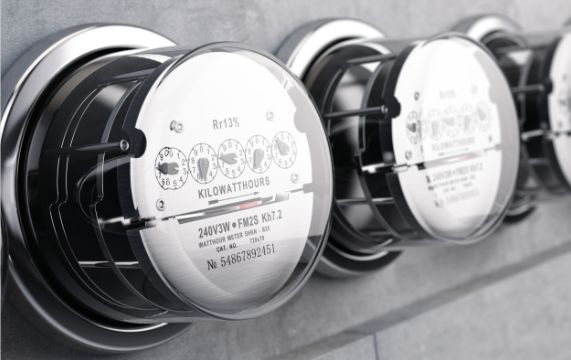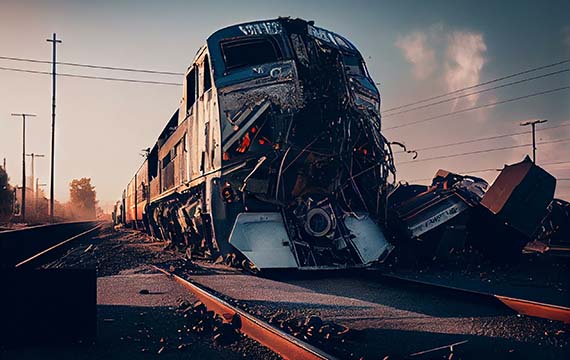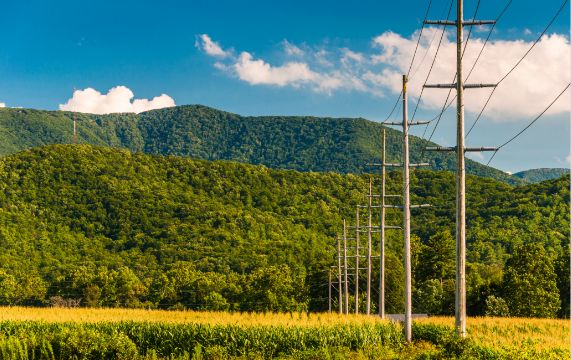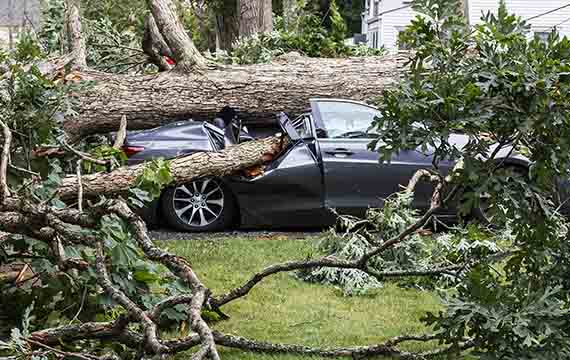SCC News

Utilities
OCT 05, 2023
RICHMOND — The State Corporation Commission (SCC) is offering time for members of the public to provide comments on an application by Appalachian Power Company to decrease its fuel factor for usage on and after November 1, 2023.
Appalachian Power’s application requests approval to recover the company's estimated Virginia jurisdictional fuel expenses of approximately $433,839,311 for the November 1, 2023, through October 31, 2024, fuel year, and its projected October 31, 2023, unrecovered fuel deferral balance of $273,125,395, subject to a mitigation proposal which would spread recovery of the unrecovered fuel deferral balance over two years.
For a residential customer using 1,000 kilowatt-hours per month, the average weighted monthly bill would decrease by $1.80, from $161.77 to $159.97, under the company’s proposal. The Commission has permitted the company to place the proposal into effect on an interim basis, subject to further modification, effective November 1, 2023.
The SCC has scheduled a public witness session to begin at 10 a.m. on January 17, 2024. Public witnesses intending to provide oral testimony must pre-register with the SCC by 5 p.m. on January 10, 2024. The hearing will be webcast at: scc.virginia.gov/pages/Webcasting.
Public witnesses wishing to provide oral testimony may preregister in one of three ways:
- Completing a public witness form for case number PUR-2023-00156 on the SCC’s website at: scc.virginia.gov/pages/Webcasting.
- Emailing the same form (PDF version on the same website as above) to SCCInfo@scc.virginia.gov.
- Calling the SCC at 804-371-9141 during normal business hours (8:15 a.m. – 5 p.m.) and providing your name and the phone number you wish the Commission to call to reach you during the hearing.
A public evidentiary hearing will follow the public witness hearing at 10 a.m. on January 17, 2024, in the SCC’s second-floor courtroom at 1300 East Main Street in Richmond to receive testimony and evidence from the company, any respondents and the SCC staff.
For those who prefer, there is also an opportunity to provide comments in writing on the Appalachian Power application. Written comments may be submitted through the SCC’s website by January 10, 2024, at scc.virginia.gov/casecomments/Submit-Public-Comments. Simply go to the SCC website, select "Cases" and then "Submit Public Comments," and scroll down to case number PUR-2023-00156. Then click SUBMIT COMMENTS.
Comments can also be submitted by U.S. mail to the Clerk of the State Corporation Commission, c/o Document Control Center, P.O. Box 2118, Richmond, Virginia 23218-2118. All comments must refer to case number PUR-2023-00156.
###
Contact: Greg Weatherford, 804-371-9141
Case Number PUR-2023-00156 – Appalachian Power Company application to decrease its fuel factor

Financial
SEP 27, 2023
RICHMOND – From fast food and fitness to real estate, home improvement and auto repair, franchises offer something for almost any business interest. Buying and operating a franchise business can require a substantial commitment of time and money. For this reason, the State Corporation Commission’s (SCC) Division of Securities and Retail Franchising (Division) encourages Virginians who are considering buying a franchise to educate themselves before they buy.
“Assess your financial resources, abilities and goals and thoroughly understand franchise disclosures and your rights,” said Division Director Doug Joyce.
A franchisor must provide each prospective franchisee with a detailed Franchise Disclosure Document (FDD) at least 14 days before they invest in that franchise business. Required by federal and Virginia laws, the FDD consists of 23 specific items of information, including: the history of the franchise being offered; information about its officers and directors; costs to the franchisee; obligations of the franchisor and franchisee; financial statements; restrictions; franchisor operating practices, and renewal, termination or transfer of a franchise. Joyce encourages prospective franchisees to read the FDD thoroughly and make sure they fully understand it before they buy a franchise business.
Franchisors are required to register franchises operated in Virginia with the Division before offering or selling them to the public. Alternatively, some franchises may qualify for an exemption from registration. To find out if a franchise is registered in Virginia, contact the Division at 804-371-9051 in Richmond or toll-free at 1-800-552-7945 or visit its website at scc.virginia.gov/RegSearches#FRANCHISE.
Additional franchising resources are available on the North American Securities Administrators Association (NASAA) website at nasaa.org/industry-resources/franchise-resources/.
###
Contact:

Financial
SEP 21, 2023
RICHMOND – The federal government has approved Virginia’s application to change the essential health benefits (EHB) benchmark plan for Affordable Care Act (ACA) health plans offered in the Commonwealth in the individual and small-group markets beginning January 1, 2025. The EHB benchmark plan sets the required benefits that must be provided by comprehensive fully insured individual and small-group health insurance coverage issued in Virginia. This is the first time changes have been made to Virginia’s EHB benchmark plan since 2017.
The Centers for Medicare and Medicaid Services (CMS), the federal agency primarily responsible for ACA oversight, approved Virginia’s application in late August.
The State Corporation Commission’s (SCC) Bureau of Insurance (Bureau) submitted the application pursuant to legislation passed by the 2023 Virginia General Assembly directing the Bureau to select a new EHB benchmark plan for plan year 2025.
In addition to the legislation regarding the 2025 EHB benchmark plan, the 2023 General Assembly passed legislation that establishes a new formalized process for future review and updates to Virginia’s EHB benchmark plan.
“We are pleased to announce CMS’s approval of these benefits for the 2025 EHB benchmark plan as specified by the Virginia General Assembly,” said Virginia Insurance Commissioner Scott A. White. “We look forward to our continuing future review of potential health benefit options to present to legislators for possible inclusion in the EHB benchmark plan for individuals and small groups who purchase fully insured health coverage in Virginia.”
Among the changes that have been made to Virginia’s EHB benchmark plan for qualifying health plans that begin January 1, 2025, are the following:
- Coverage for enhanced prosthetic devices and components – the new EHB benchmark plan redefines medically necessary prosthetics to include myoelectric, biomechanical or microprocessor-controlled prosthetic devices; and
- Formula and enteral nutrition products for inherited metabolic disorders as medicine – the new EHB benchmark plan requires coverage of orally administered, medically necessary formula and removes the requirement that medically necessary medical formula provide more than 51% of caloric needs.
Benefit changes to Virginia’s EHB benchmark plans do not apply to grandfathered plans or large-group plans, such as plans offered through large employers (51 or more employees).
A state’s EHB benchmark plan must include coverage for the following:
- Ambulatory patient services
- Emergency services
- Hospitalization
- Maternity and newborn care
- Mental health and substance use disorder services
- Prescription drugs
- Rehabilitative and habilitative services and devices
- Laboratory services
- Preventive and wellness services and chronic disease management
- Pediatric services, including oral and vision care
For questions or to learn more about Virginia’s 2025 EHB benchmark plan, contact the Bureau of Insurance by telephone at 804-371-9741 in Richmond or toll-free at 1-877-310-6560, by email at BureauofInsurance@scc.virginia.gov, or visit its website at Virginia SCC - Essential Health Benefits Benchmark Plan.
###
Contact: Katha Treanor, 804-371-9141

Utilities
SEP 18, 2023
RICHMOND – The State Corporation Commission (SCC) has approved Dominion Energy Virginia’s Phase III of its plan for electric distribution grid-transformation projects that the company seeks to deploy in 2024-2026, while reducing from $508.3 million to $182.7 million the amount allowable for Dominion to spend on strengthening mainfeeder lines.
In addition to approving the continuation of several programs – including deployment of advanced metering infrastructure; a customer information platform; targeted corridor improvement; voltage optimization enablement; and telecommunications and physical security enhancements – the Commission approved an expanded mainfeeder hardening pilot, consisting of 44 mainfeeders.
The Commission also approved two new programs: an outage management system and a non-wires alternative pilot. The non-wires alternative pilot consists of up to five front-of-the-meter battery energy storage systems to be installed over five years.
In total, the Commission approved $824.1 million in capital investments through 2026 to improve the safety and security of Dominion’s electric distribution system and $58.6 million in operations and maintenance.
In approving the hardening of 44 mainfeeders, the Commission noted that Dominion’s initial request to harden 111 mainfeeders would have cost $1.3 billion over the life of the investments when including financing costs. “Simply put, the Company has not sustained its burden of proving these costs are reasonable and prudent,” the Commission wrote.
###
Contact: Greg Weatherford, 804-371-9141
Case Number PUR-2023-00051 – Petition of Dominion Energy Virginia for approval of a plan for electric distribution grid transformation projects

Utilities
SEP 18, 2023
RICHMOND – Every three hours in the United States, a person or vehicle is hit by a train, according to Operation Lifesaver Inc. (OLI), a nonprofit organization dedicated to rail safety education.
During Rail Safety Week – September 18-24, 2023 – the State Corporation Commission (SCC) joins OLI, state Operation Lifesaver programs, and other rail safety partners throughout North America to raise awareness about the need for pedestrians, motorists, bicyclists and others to stay safe around railroad tracks and crossings.
Lauren Govoni, director of the SCC’s Division of Utility and Railroad Safety, and Virginia Operation Lifesaver Coordinator Tracey Lamb encourage Virginians to stay alert, use caution and obey signals around railroad tracks, and to always expect a train. “Rail safety is much more than just a single tip or slogan,” Govoni said. “It’s a set of guidelines for different groups of people, including children, first responders, media professionals, photographers, personal and professional drivers, and more.”
As part of this annual nationwide campaign, the SCC will partner with law enforcement and organizations throughout the state to promote daily Rail Safety Week themes that include commuter and transit safety, crossing safety and professional drivers, trespass prevention, and photographer safety. It will also share potentially life-saving information on its website and social media pages.
While the 82% decrease in collisions nationwide at highway-rail grade crossings during the past 50 years is encouraging, “there is still more rail safety awareness work to do,” Lamb said. “Trains can take a mile or more to come to a complete stop. If your vehicle ever stalls on the track, immediately exit your vehicle and call the phone number on the blue Emergency Notification System sign located at the crossing or 9-1-1,” she said. Virginia Operation Lifesaver is administered by the SCC’s Division of Utility and Railroad Safety, which offers education sessions and can be reached at 804-371-1588. To learn more about railroad safety and railroad regulation in Virginia, visit scc.virginia.gov/pages/Railroad-Regulation or oli.org.
###
Contact: Jordan Bondurant, 804-371-9141

Financial
SEP 12, 2023
RICHMOND – Hurricanes and other natural disasters can take a huge toll on businesses, including closures or disruptions that may last for days or longer. Some businesses may never reopen following a natural disaster and others that reopen may fail within one year of the disaster due to its effects.
No business is immune to natural disasters. Even disasters far away can impact your business by disrupting supply chains and communications. Small businesses are particularly vulnerable when it comes to disasters since they often have fewer resources, locations and employees to help them become operational again.
The State Corporation Commission’s (SCC) Bureau of Insurance (Bureau) encourages businesses to review their insurance coverage regularly and adjust it, as needed, while considering the possibility of a natural disaster. Businesses should understand what their policies cover and how much they may need to make repairs, minimize disruptions, and pay business expenses – including payroll and payments to creditors – in the event of a disaster.
The Bureau reminds Virginians that advance planning is critical. “How you plan for and respond to disasters can determine whether your business survives,” said Virginia Insurance Commissioner Scott A. White. “Protect yourself and your business financially by preparing for the unexpected and having the insurance coverage you need when you need it.”
The Bureau offers the following tips to help get your business running again as quickly as possible after a natural disaster:
- Assess your risk for certain types of disasters, such as fires or floods.
- Have emergency disaster and business continuity plans in place.
- Make sure your insurance coverage is up to-date by reviewing policies and making adjustments, as needed.
- Know how to respond if disaster strikes.
Educate yourself on what your insurance policies cover and consider the following:
- What are your deductibles, coverage limits and exclusions?
- Do you need additional or separate coverages such as coverage for damage related to floods or earthquakes, which are not usually covered by standard business insurance policies?
- Do you need separate automobile insurance for business vehicles?
- Are your business and its contents insured for current replacement cost?
- Will you need business interruption insurance to cover loss of income that your business may suffer after a disaster?
Additional steps businesses can take include the following:
- Share business continuity plans with employees that include current employee contact information, backup vendors or suppliers and a temporary relocation site.
- Develop a communication plan and procedures for work processes and payroll during a disaster or business interruption.
- Keep preparedness items onsite at your workplace – including disaster provisions, maps with evacuation routes and access to a working radio and mobile apps for emergency instructions.
- Compile and safely store an inventory of assets and equipment (including computer hardware), and back up all personal and company data regularly in case information is lost during a disaster.
- Keep physical copies of important records (such as building plans, insurance policies, bank accounts and employee contact information) in a safe, waterproof and fireproof place.
- After a disaster strikes your business, contact your insurance agent or company immediately and ask what information is needed to file a claim.
The Bureau of Insurance offers free consumer guides specifically geared to businesses. To learn more, contact the Consumer Services Section of the Bureau of Insurance Property and Casualty Division toll-free at 1-877-310-6560 or in Richmond at 804-371-9185 or visit scc.virginia.gov/pages/Insurance.
For additional emergency preparedness information relating to disasters, visit vaemergency.gov.
###
Contact: Katha Treanor, 804-371-9141

Utilities
SEP 11, 2023
RICHMOND – National Digital Connectivity and Lifeline Awareness Week is September 11-15, 2023, and the State Corporation Commission (SCC) is bringing attention to an important communications resource for low-income Virginians. The Lifeline program is administered by the Universal Service Administrative Company (USAC) and provides a monthly discount of up to $9.25 on qualifying voice and broadband services for eligible subscribers.
Internet access has increasingly become a necessity for Virginians to stay digitally connected. You could be eligible for the Lifeline benefit if your income falls below a certain level – at or below 135 percent of the federal poverty guidelines – or if you participate in one of the following federal assistance programs:
- Supplemental Nutrition Assistance Program (SNAP)
- Medicaid
- Supplemental Security Income (SSI)
- Federal Public Housing Assistance (FPHA)
- Veterans Pension and Survivors Benefit
Companies participating in the Lifeline program can help with enrollment. You can also use the National Verifier to check your eligibility and sign up for the Lifeline benefit. Since not all companies are required to offer Lifeline service, it’s a good idea to contact area providers to see if they participate.
To learn more about the Lifeline program and the National Verifier, and to see if you are eligible, call 1-800-234-9473 or email lifelinesupport@usac.org or visit www.lifelinesupport.org or the FCC website at www.fcc.gov/lifeline-consumers. You may also contact USAC at LifelineProgram@usac.org.
###
Contact: Jordan Bondurant, 804-371-9141

Utilities
SEP 08, 2023
RICHMOND – The State Corporation Commission (SCC) approved the 2023 Renewable Energy Portfolio Standard (RPS) development plan for Appalachian Power Company for new solar and onshore wind generation capacity. The company is required to submit an annual plan to the SCC to comply with the Virginia Clean Economy Act (VCEA).
The SCC found that Appalachian Power’s plan is reasonable and prudent giving due consideration to the statutory factors contained in the VCEA.
The Commission approved six new power purchase agreements (“PPAs”) totaling 184 megawatts, one renegotiated PPA totaling 20 megawatts and acquisition of an out-of-state wind facility totaling up to 146.2 megawatts.
The Commission denied the company’s request for cost recovery associated with a legacy wind contract, finding the economic analysis did not show positive value for customers.
The SCC also approved a revenue requirement of $16,373,821 for the recovery of VCEA-related resources for the rate year of October 2023 through September 2024.
In its final order, the Commission stated, “The Commission … is guided in these matters by the statutes and the record. The Commission has continued to exercise its delegated discretion in a manner that faithfully implements the VCEA’s carbon-reduction requirements, while best protecting consumers who expect and deserve reliable and affordable service.”
###
Contact: Greg Weatherford, 804-371-9141
Case Number PUR-2023-00001 - Petition of Appalachian Power Company for approval of 2023 RPS Plan and related requests
View Final Order

Financial
SEP 01, 2023
RICHMOND – Many Virginians would face financial hardship if a wage earner in their immediate family died unexpectedly. Life insurance is designed to protect loved ones against the loss of an individual’s income or services. During Life Insurance Awareness Month (September), the State Corporation Commission’s (SCC) Bureau of Insurance (Bureau) reminds Virginians that there are many factors to consider when determining if life insurance is right for you and your family.
“When planning for your family’s financial future, review your existing resources, debts and other liabilities, as well as your family’s needs and goals,” said Virginia Insurance Commissioner Scott White. “Understand the different types of life insurance and shop around to compare prices and coverage.”
White encourages Virginians who already have life insurance to review their policies and beneficiaries regularly to ensure their coverage keeps pace with their changing circumstances. Life events such as a birth, divorce, remarriage or other changes affecting your finances (such as a new mortgage or a new job) may trigger a need to update your life insurance policy.
If you do not have life insurance, shop around and understand the different types of policies available and the costs. When determining how much coverage you may need, evaluate your existing resources and your family’s likely financial situation following a death. Consider the following: Does your spouse work? Do you have any sources of income other than salary? Do you have life insurance through your job?
Also think about financial obligations that may fall upon family members if you die, such as mortgage or rent payments, business expenses, medical expenses, car loans or student loans. Also consider your family’s short-term and long-term goals such as your spouse’s retirement, providing care for a loved one, or your children’s education.
Understand the difference between term life and permanent life insurance and how benefits are paid if you die. What you pay for life insurance (premiums) depends largely on the type of policy chosen, your health status, age, gender, occupation, family health history and lifestyle. Be sure to compare premiums, coverage and claims service when considering life insurance options.
Contact the Bureau in Richmond at 804-371-9741 or toll-free at 1-877-310-6560 for questions, or to make sure the company or individual offering the coverage is licensed and in good standing. The Bureau offers a free Virginia Life Insurance Consumer Guide with answers to many questions about life insurance. Consumer resources on a variety of insurance topics are available at scc.virginia.gov/pages/Tips,-Guides-Publications.
Additionally, the National Association of Insurance Commissioners offers a free Life Insurance Policy Locator Service that can help consumers find lost life insurance policies and annuity contracts insuring deceased individuals.
###
Contact: Katha Treanor, 804-371-9141

Financial
AUG 29, 2023
RICHMOND – There have already been nine named storms during the 2023 Atlantic hurricane season, three of which have developed into hurricanes and one into a major hurricane. As Hurricane Idalia makes its way toward the Florida coast, the State Corporation Commission’s (SCC) Bureau of Insurance (Bureau) reminds Virginians that the time to plan for hurricanes and other disasters is now.
Late August to early October is often the most dangerous and active time for tropical storm activity. Whether you’re a homeowner, renter or business, review your insurance and make sure you have the coverage you need before disaster strikes.
Hurricane season officially runs from June 1 to November 30. Even areas hundreds of miles from the coast can be impacted by the high winds, heavy rains and flooding that accompany hurricanes and tropical storms. It may be difficult to obtain coverage once a storm is headed your way, so review your coverage ahead of time and make any necessary changes.
“Don’t wait until it’s too late to protect yourself and your property from a hurricane or other natural disaster. Take steps now to protect yourself, your loved ones and your belongings both physically and financially,” said Virginia Insurance Commissioner Scott A. White. “Assess your risk and make sure you have the insurance coverage you need before a storm begins to brew.”
The Bureau encourages Virginians to talk to their insurance agent or company if they have questions about what is and is not covered, how to reduce property damage and what to do if damage does occur.
Most homeowners and renters insurance policies do not cover losses due to flooding. Talk to your insurance agent about flood insurance or visit the National Flood Insurance Program’s website at www.floodsmart.gov to learn more about protecting your home or business from damage due to floods, surface water or storm surge. There is typically a 30-day waiting period for a new flood insurance policy to take effect.
The Bureau also recommends creating a detailed home inventory of your belongings with photos, videos and serial numbers. The National Association of Insurance Commissioners’ (NAIC) free smartphone app – https://content.naic.org/consumer/home-inventory – can facilitate this process. Place your insurance policies and inventory in a safe place and take them with you if you must evacuate. These records will contain your policy numbers and the phone numbers of your insurance companies in case you have questions or need to file a claim.
If your property is damaged by a hurricane, contact your insurance agent or insurance company as soon as possible. To protect your property from further damage, make necessary emergency repairs. Document all damage to your property and include photographs, notes and repair-related receipts.
The Bureau also encourages policyholders to consider the following:
- Does your homeowners policy contain a special deductible for wind or hurricane losses? These deductibles are applied separately from any other deductible on a homeowners policy and may be written as a flat amount, such as $1,000, or applied to a loss as a percentage of the insurance coverage on the dwelling.
- Does your homeowners policy provide coverage for sewer backup? Many homeowners policies do not provide coverage for sewer backup, but policyholders may purchase additional coverage for this.
- Are vehicles covered in the event of a hurricane or windstorm? If you have other-than-collision coverage (often referred to as “comprehensive” coverage) for your vehicle under your automobile policy, your vehicles generally should be covered for flood and wind damage.
The Bureau has specially trained staff who can assist consumers with their insurance-related questions and concerns. To learn more, contact the Bureau of Insurance Property and Casualty Division toll-free at 1-877-310-6560 or in Richmond at 804-371-9185. The Bureau also offers free consumer guides for homeowners and commercial property owners with information about what to do when a disaster strikes. These are available on the disaster readiness section of its website at scc.virginia.gov/pages/Disaster-Readiness.
For additional emergency preparedness information relating to hurricanes and other types of disasters, visit the Virginia Department of Emergency Management website at www.vaemergency.gov/.